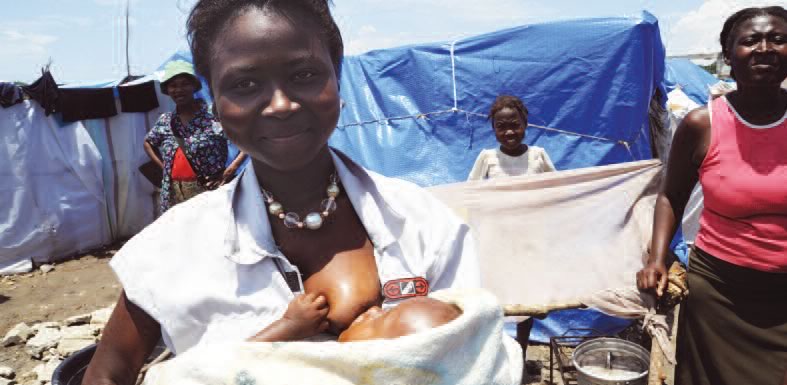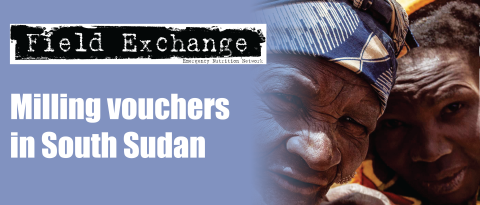Infant feeding support at scale in the Haiti 2010 response
Summary of published experience1
 Location: Haiti
Location: Haiti
What we know: Sub-optimal breastfeeding practices increase risk of infant morbidity, malnutrition and death. Emergencies increase these risks.
What this article adds:Targeted breastfeeding and artificial feeding support to assessed infants and children was successfully provided at scale during the Haiti response. There were many challenges including how to assess need for artificial feeding at individual and community levels, how to manage supplies of infant formula and lack of national capacity to provide skilled support to breastfeeding infants. Lessons include the need for minimum implementation and reporting standards and monitoring tools at individual and project levels.
The 2010 earthquake in Haiti displaced about 1.5 million people, many of them into camps for internally displaced persons. It was expected that disruption of breastfeeding practices would lead to increased infant morbidity, malnutrition and mortality. There was additional risk of untargeted donations of infant formula; in the weeks immediately after the earthquake, Haiti received infant feeding products from different countries in enormous quantities.
Haiti’s health ministry and UNICEF, in collaboration with local and international non-governmental organisations, established baby tents in the areas affected by the earthquake. The tents provided a safe place for mothers to breastfeed and for non-breastfed infants to receive ready-to-use infant formula. Such a large and coordinated baby tent response in an emergency context had never been mounted before anywhere in the world.
Baby tents were set up in five cities but mainly in Port-au-Prince, where the majority of Haiti’s 1555 camps for displaced persons had been established.
Between February 2010 and June 2012, 193 baby tents were set up; 180,499 mother–infant pairs and 52,503 pregnant women were registered in the baby tent programme. Of infants younger than 6 months, 70% were reported to be exclusively breastfed and 10% of the “mixed feeders” moved to exclusive breastfeeding while enrolled. In 2010, 13.5% of registered infants could not be breastfed. These infants received ready-to-use infant formula.
Challenges
There were many challenges requiring ‘real time’ innovation to address them, including:
- Pre-emergency breastfeeding practices and guidelines were poor.
- Training materials for the Haiti context on infant formula use did not exist.
- The health ministry was severely disrupted affecting the availability of trained health workers and psychologists.
- Displacement disrupted social cohesion and community support.
- Determining community infant formula needs, procuring supplies and managing stocks were all a challenge.
- Urban mothers often worked outside the home and left infants in the care of others.
Key lessons
Thanks to rapid programme scale-up, breastfeeding practices remained undisrupted. Key lessons were:
- It is important to promote optimal infant and young child feeding practices through people with effective counselling skills during times of normality, before disaster strikes.
- There is a need for clear and easily adaptable infant feeding guidelines for emergencies that include a set of minimum implementation and reporting standards and monitoring tools for use at the individual and project levels.
- Involvement of community leaders and caregivers in the design and implementation of baby tent programmes are essential to ensure community awareness, participation and follow-up.
- There is a need for a clear strategy for transitioning baby tent activities into facility and community programmes.
1Ayoya M et al (2013). Protecting and improving breast feeding practices during a major emergency: lessons learnt from the baby tents in Haiti. Bull World Health Organ 2013;91:612–617


